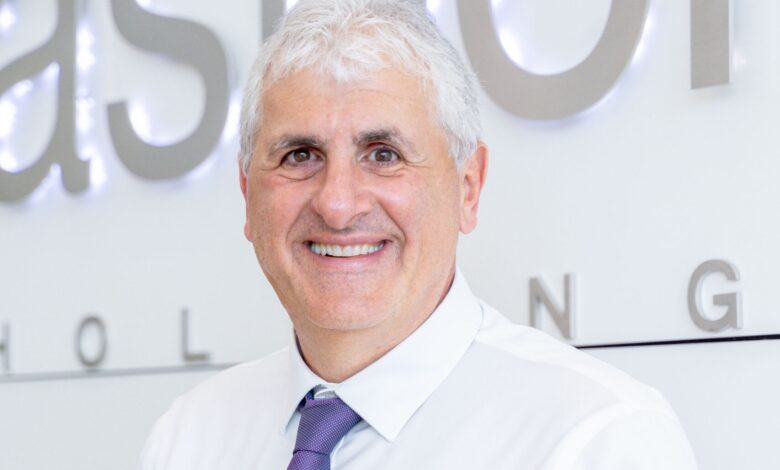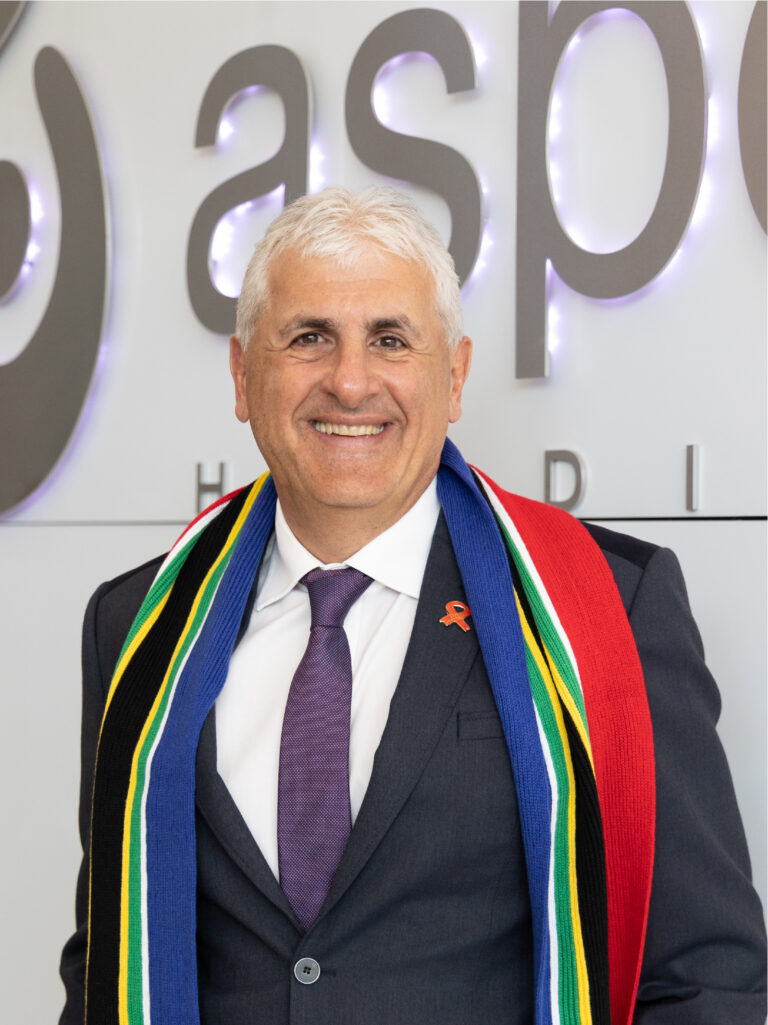Building a Global Pharma Giant: Stephen Saad’s Vision and Aspen Pharmacare’s Rise to Success

Building a Global Pharma Giant: Stephen Saad’s Vision and Aspen Pharmacare’s Rise to Success. When Stephen Saad founded Aspen Pharmacare in 1997, he was driven by a vision that few could see at the time: to create a global pharmaceutical company from South Africa. What started as a small, locally focused business would go on to transform into one of the largest pharmaceutical companies in the world. The story of Aspen’s rise is not just about the success of a business; it’s about vision, innovation, resilience, and the strategic choices made at key turning points. Let’s take a deeper dive into the journey of Aspen Pharmacare and uncover the strategies and lessons that aspiring entrepreneurs can learn from Stephen Saad’s remarkable story.
The Genesis: A Bold Vision in a Competitive Market
Stephen Saad didn’t come from a family of entrepreneurs or a background in pharmaceuticals. His entrepreneurial spark was ignited when he saw an opportunity to change the South African healthcare landscape. In the mid-1990s, the pharmaceutical industry was dominated by multinational giants. The market was highly competitive, and most local companies were focused on generic manufacturing rather than innovation. But Saad saw this as an opportunity to carve out a niche by creating a company that could not only compete but grow beyond the borders of South Africa.

Saad’s decision to build Aspen Pharmacare was rooted in his deep desire to bring affordable, high-quality medicines to people around the world. This vision of improving healthcare access was both a driving force and a personal commitment. For aspiring entrepreneurs, this lesson is clear: a business founded on a clear, impactful mission can fuel long-term success. Saad’s focus wasn’t just on profit; it was on making a meaningful difference—a perspective that inspired every step of Aspen’s growth.
Taking the Leap: The Early Struggles and Strategic Acquisitions
Aspen’s journey began with Stephen Saad purchasing a small South African generics company. In those early days, the company faced significant challenges, from limited financial resources to a lack of industry recognition. But Saad was undeterred. He understood the power of strategic acquisitions and reinvested his efforts into acquiring other small pharmaceutical businesses. This allowed Aspen to rapidly expand its product portfolio and build credibility in the competitive pharmaceutical sector.
The turning point came when Saad made a strategic decision to venture into the international market. He focused on acquiring companies that had established brands but were underperforming or needed more efficient management. Aspen’s acquisition strategy didn’t just expand its market presence—it allowed the company to gain access to important intellectual property and infrastructure that would serve as the foundation for its later growth.
For entrepreneurs, the takeaway is clear: look for strategic acquisitions that can provide immediate value. Whether it’s expanding product offerings, accessing new markets, or gaining operational efficiencies, a well-executed acquisition strategy can propel a company forward.
Going Global: Aspen’s Ambitious Expansion
Aspen Pharmacare’s success isn’t just about what it accomplished in South Africa; it’s about how it used its South African base to propel itself into the global market. By the early 2000s, Saad recognized that growth in the pharmaceutical industry was no longer limited to national borders. So, he set his sights on international markets, particularly emerging economies where healthcare was rapidly developing.
One of Aspen’s key moves was its expansion into markets like Latin America, Asia, and Europe. Saad’s strategy was based on two key principles: affordable access and high-quality products. Aspen became known for its ability to deliver generic medicines at competitive prices without compromising on quality. This approach positioned Aspen as a leader in affordable healthcare, especially in regions where pharmaceutical costs were a major barrier to access.
Aspen’s global expansion was also fueled by its innovative approach to vertical integration—meaning that the company not only manufactured but also marketed and distributed its products. This control over the entire supply chain allowed Aspen to reduce costs, improve efficiency, and increase profitability.
For entrepreneurs, this underscores the importance of scaling strategically. Aspen’s growth wasn’t a hasty expansion; it was well-thought-out and deliberate. The lesson here is: don’t just aim to grow for the sake of growth. Make sure your expansion aligns with your core strengths and allows you to offer a valuable solution to new markets..

Overcoming Challenges: Resilience Through Market Shifts
As Aspen continued to grow, it encountered significant challenges. The pharmaceutical industry is notoriously difficult, marked by stringent regulations, market fluctuations, and intense competition. But Saad’s resilience and adaptability were key to Aspen’s ability to weather these storms.
One of the most significant challenges came in 2012 when Aspen faced pressure from pricing regulations in some of its international markets, particularly in Europe. The company’s solution wasn’t to retreat but to adapt. Aspen diversified its offerings by shifting its focus to high-value medicines, including specialized treatments for oncology and anesthetics. This pivot allowed the company to continue its growth trajectory while maintaining profitability.
Aspen also made headlines by acquiring several global brands, including the acquisition of Actavis’s generics business, which further expanded Aspen’s reach. This decision to acquire and consolidate global assets was risky, but it paid off as Aspen strengthened its foothold in the international market.
For entrepreneurs, this is a key lesson in resilience: adapt to challenges and keep pushing forward. There will always be obstacles, but your ability to pivot, adjust, and find new opportunities in the face of adversity is what separates successful businesses from the rest.
The Pursuit of Sustainable Growth
Today, Aspen Pharmacare continues to innovate in ways that ensure its leadership in the pharmaceutical industry. The company has heavily invested in research and development (R&D), producing groundbreaking treatments for cancer, HIV, and other serious conditions. This focus on innovation has positioned Aspen as a leader not just in generics, but in producing cutting-edge therapies for diseases with global impact.
Moreover, Aspen has continued to focus on sustainability, aligning its business practices with environmental and social responsibility. The company is dedicated to making healthcare accessible in underserved communities and ensuring that its products are manufactured sustainably. This commitment to sustainability is becoming increasingly important to consumers, investors, and other stakeholders, helping to bolster Aspen’s reputation.
For entrepreneurs, the lesson here is innovation should be at the core of your business. Even if you’re not a tech company, there’s always room for creative problem-solving and new ideas. Innovation is the key to staying ahead of competitors and ensuring long-term relevance.

Key Lessons for Aspiring Entrepreneurs:
- Start with a Clear Mission: Stephen Saad’s initial vision to improve access to healthcare set the foundation for Aspen’s success. Entrepreneurs should identify a cause that’s meaningful and build their business around it.
- Strategic Acquisitions: Aspen’s success was fueled by its acquisition strategy. Look for companies or assets that can complement and enhance your current business to expand your reach and capability.
- Expand Thoughtfully: Aspen’s international expansion was both bold and strategic. Entrepreneurs should scale only when they’ve mastered their local market and have a clear plan for entering new ones.
- Adapt and Overcome Challenges: Every business faces challenges, but it’s how you respond that matters. Diversify, pivot, and keep looking for new opportunities when market conditions change.
Conclusion: A Legacy of Impact and Innovation
Stephen Saad’s decision to build Aspen Pharmacare wasn’t just about business; it was about creating a legacy. Today, Aspen is a global leader in pharmaceuticals, but its story is more than just financial success—it’s about using business as a platform to improve lives and make a tangible difference in global healthcare. For aspiring entrepreneurs, Saad’s journey is a masterclass in strategic thinking, resilience, and the importance of staying true to one’s vision. Whether in pharmaceuticals or any other industry, the principles of innovation, adaptability, and mission-driven leadership are timeless.


